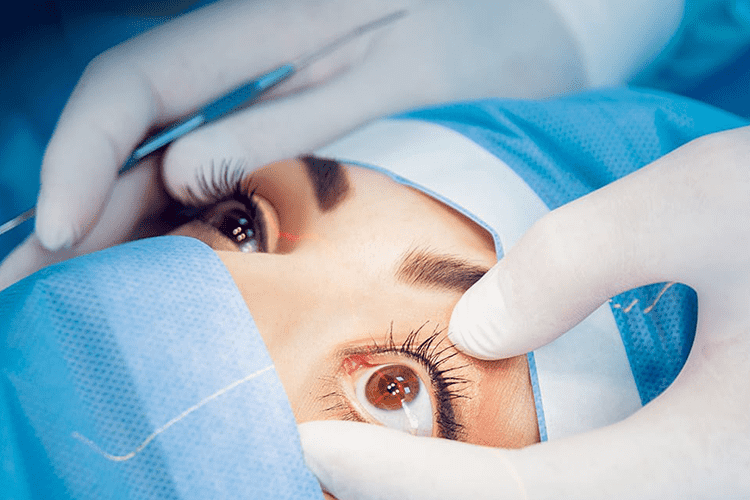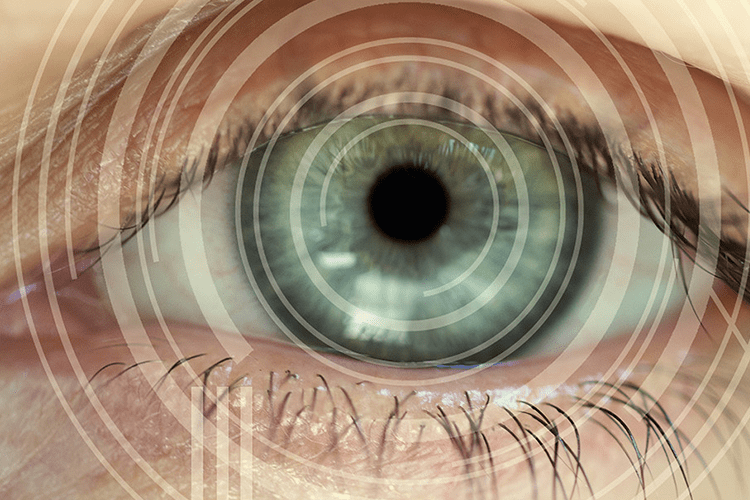Cataract surgery is a procedure of the eye that removes and replaces a lens that has become cloudy. The vast majority of patients achieve improved, sharper vision, but this change is not necessarily immediate.
Although some patients see well just a few days after cataract surgery, full healing can take up to three months. Cataract surgery recovery time tends to be minimal and mild, but there are various factors that can impact the speed of recovery. Read on to learn about the recovery process as your eye heals from cataract surgery
Who needs cataract surgery?
You may need cataract surgery if cataracts are causing vision problems that interfere with your activities, like driving or reading.
Your provider also may need to remove a cataract to see the back of your eye and help manage other eye conditions, such as:
- Age-related changes in the retina (the tissue at the back of the eye).
- Diabetic retinopathy, an eye condition affecting people with diabetes.

How do I decide if it’s time for cataract surgery?
When you first notice cataract symptoms, a new prescription for eyeglasses or contact lenses might help. But cataracts usually get worse over time. Eventually, you and your healthcare provider may decide to do cataract surgery to help you see well enough to do all the things you want to do and need to do.
Cataract Surgery Recovery Tips
Cataract surgery is a day procedure and most people expect to return home the same day though will be advised against driving immediately after the operation and potentially for the following several days until their postoperative vision can be assessed.
It’s quite normal for vision to feel slightly blurry immediately after surgery and for your eye to be a bit red and sore for the next few days. Your vision will continue to improve and stabilise over the following 4-6 weeks of recovery time but within a few days of the operation, many people often notice their vision is already much better than when they had the cataract.
After having cataract surgery, it’s important to follow all post-op instructions from your ophthalmologist in order to maximise your likelihood of a smooth cataract surgery recovery period.
Different ophthalmologists may have slightly different post-op instructions, but most will include similar guidelines such as:
Protect the eye: You will be given a protective plastic shield to tape over the operated eye. Your eye specialist may recommend you keep this on for a couple of days, or may say that it’s okay to remove after a few hours but should be worn to sleep to prevent you from accidentally rubbing the eye. Protecting the eye as it heals also involves avoiding any foreign particles that may contaminate the wound. This includes dust, dirt, makeup, and even soap, shampoos, and unsterile water such as swimming pools and spas.
Avoid strenuous activity: This is typically recommended after any surgical procedure and eye surgery is no different. For a few weeks post-op your ophthalmologist will advise you to stay away from vigorous exercise or heavy lifting. It is also recommended to try and avoid any other activity that may increase the pressure around the eye immediately after surgery, such as bending over or vomiting.

Use your prescribed eye drops: Your ophthalmologist will provide you with a prescription for a few topical medications. These will include an anti-inflammatory eye drop, typically a steroid, and an antibiotic eye drop to prevent any infections. It’s important to follow the dosing regime as prescribed even if you think your eye is feeling okay as not doing so could prolong your recovery time unnecessarily in the event of unexpected inflammation or infection.
Seek medical attention if your eye doesn’t seem right: A deterioration in the clarity of your vision or progressively increasing pain, redness, or discharge after surgery is not normal and should be brought to the attention of your eye surgeon immediately. Most ophthalmologists will have already organised a review exam roughly a day after your operation, a week later, and a month after that, but if at any time in between you think something is not right with your eyes you should have it promptly attended to. Remember, your care with your eye specialist doesn’t stop once you leave the operating theatre.
NEVER IGNORE YOUR HEALTH, IT ALWAYS COMES FIRST. WE AE ALWAYS ONE PHONE CALL AWAY IF YOU NEED ANY ASSISTANCE BEFORE OR AFTER YOUR SURGERY.






